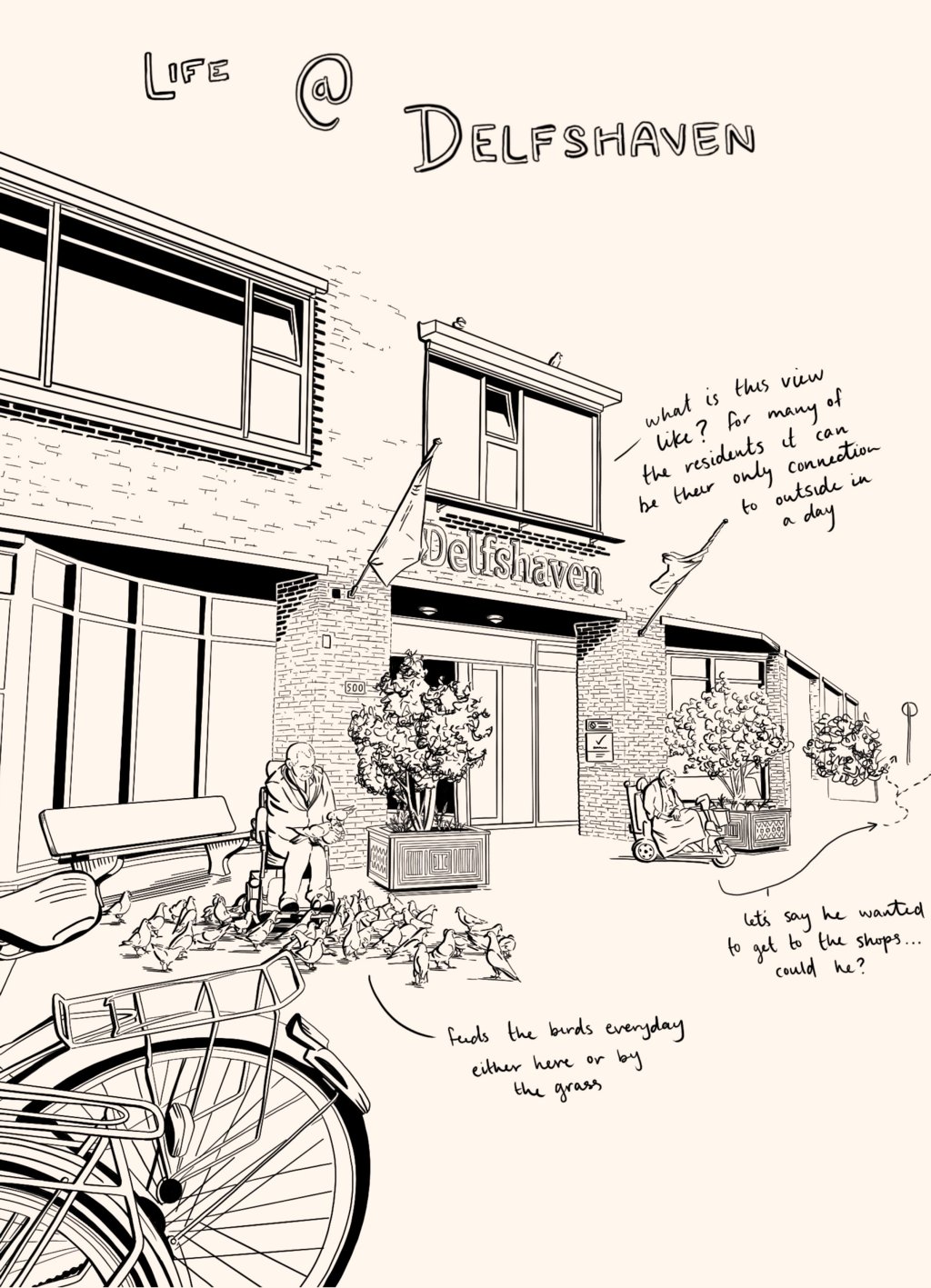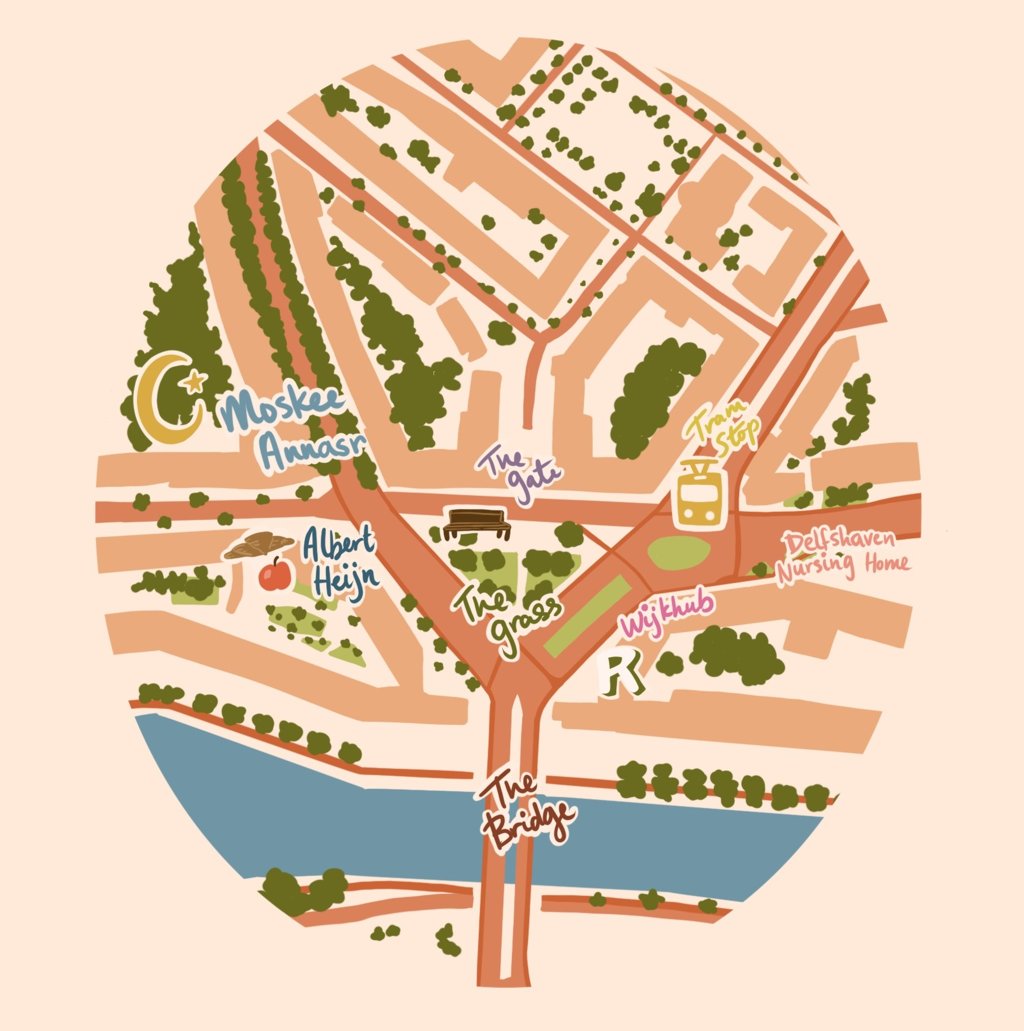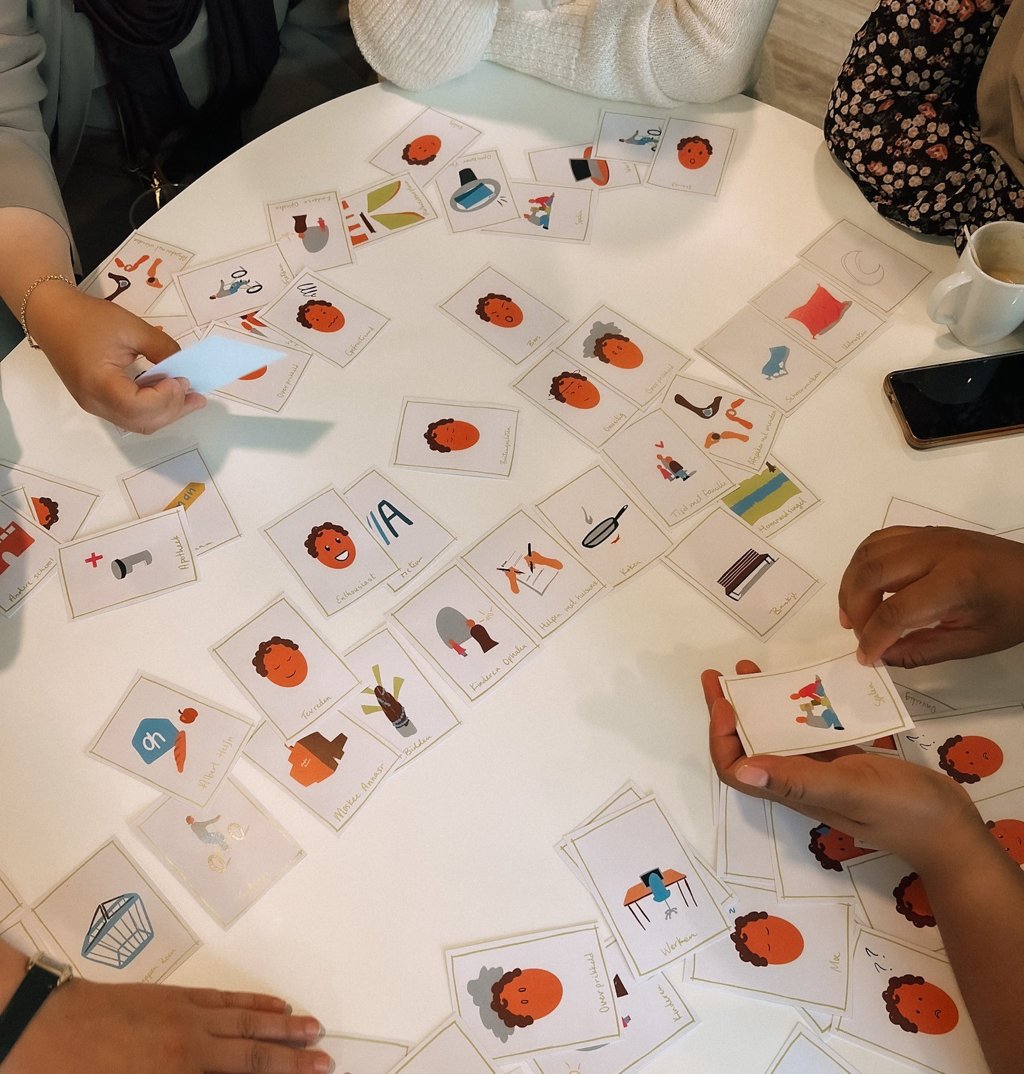The Mathenesserplein is a historically significant yet underused square in Rotterdam-West, once central to mobility but now fragmented by cars and overlooked in daily life. The area reflects the broader challenges of urban design. Climate adaptation, social cohesion, and inclusivity are pressing, but residents often feel excluded from the decisions shaping their environment. Participation tends to stop at consultation, where opinions are heard but rarely acted on. Shared Ground began with the question: how can design foster genuine collaboration between citizens, government, and institutions? Through ethnography, observation, and co-creation, we uncovered a need for new participatory tools that could both spark dialogue and redistribute power. The problem was not only the square’s design but also the processes that determine its future.
Can participation return ownership of the neighbourhood to its people?
Shared Ground introduces a participatory system tested in the Mathenesserplein. Tools included the Flower Vote Kit (a street prototype allowing residents to select ecological planting options), the Emmaus Card Kit (a structured dialogue with parents), and the Community Chronicle (a locally distributed newspaper for feedback and proposals). These methods were designed to be low-barrier, visual, and adaptable to multilingual, diverse audiences. Rather than isolated events, they formed an Iterative Growth Engagement Model where residents saw their input reflected back over time. The design process followed the Double Diamond, moving from research and ideation into prototyping and validation. Unique to this approach is the emphasis on feedback loops: every intervention was both a way to collect opinions and a way to show that those opinions mattered. This dual function created moments of trust and accountability, shifting participation from tokenism towards partnership.

The relevance of Shared Ground lies in demonstrating how design can build democratic resilience in cities. By embedding feedback loops, it moves participation from symbolic consultation to co-ownership, ensuring that interventions are not only technically sound but socially legitimate. Its impact is twofold: it empowers residents to shape their environment and provides municipalities with tested methods for inclusive planning.
Limitations remain. True partnership requires long-term political commitment and resources beyond a student project. However, the Shared Ground system provides a scalable model. By making participation tangible and iterative, it challenges conventional planning to embrace shared authorship. In doing so, it aligns with broader goals of sustainable, just, and convivial urban futures.



